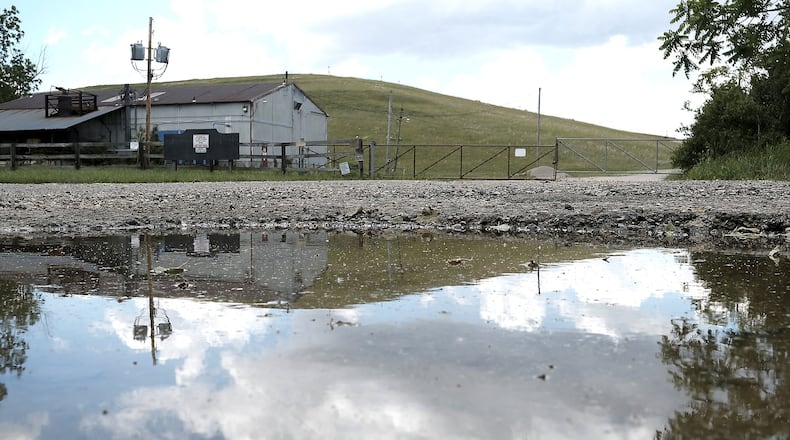On Tuesday, the EPA will be at the Springfield City Commission work session at City Hall at 6:05 p.m. On Wednesday, it will be at the Clark County Commissioners regular meeting at the Springview Government Center at 8:30 a.m. A public meeting will be held Wednesday at 6 p.m. at Northwestern High School.
“After decades of negotiations, countless meetings, starts and stops, we are finally at the starting line for actual work to begin on a remediation effort,” said Larry Ricketts of People for Safe Water, a citizens group that has pushed for decades for the cleanup project.
The 8.5-acre Tremont City Barrel Fill site located in German Township is a closed industrial waste landfill. During operations from 1976 to 1979, it’s estimated about 51,500 drums and 300,000 gallons of industrial waste were disposed of at the site, which threatens a nearby aquifer that provides drinking water to tens of thousands of area residents.
The site contains an estimated 1.5 million gallons of hazardous waste buried in the ground.
The waste included glues, resins, paint sludge, paint scraps, soap, shampoo, detergent, asbestos, oils and other industrial compounds. Food industry sources also disposed of items such as margarine and corn syrup.
The disposal stopped in 1980 and soil was later placed on top of the waste cells. Seventeen years later, the U.S. EPA began an investigation into the barrel fill and found some leaks from waste cells. An investigation by the potentially responsible parties in 2005 found most of the waste cells were intact, but showed high levels of contaminants at the barrel fill site.
Contaminants include elevated levels of volatile organic compounds, such as xylenes, ethylbenzene, toluene and methylene chloride. Metals such as chromium and arsenic were also detected in the liquid and solid waste.
Residents have fought for years to get the site cleaned up. The concern is that toxic waste may have seeped into the Buried Valley Aquifer and could impact local drinking water or continue to seep into the ground if not addressed. Those concerns led to the formation of the group People for Safe Water.
In October, the U.S. District Court for the Southern District of Ohio approved a $26 million cleanup plan after it granted the motion to approve a consent decree signed in April 2022 by all parties to begin the process of cleaning up the landfill.
In the court order, all responsible companies said they acknowledged they have waste in the landfill and are responsible for the chemicals. They entered into the federal agreement — a Superfund Alternative Approach Agreement — and signed the decree that they will clean it up and shoulder some of the financial burden to do so.
Prior to this, the cleanup process had been in a state of limbo since 2019 as the U.S. EPA and the U.S. Department of Justice began negotiations with the potential responsible parties.
The cleanup plan involves digging up containers with thousands of gallons of toxins. The liquid waste would be removed from those containers, classified and sent off-site, while the solid waste would remain and be repackaged and reburied in a double-lined pit. That location would then be capped, and nearby groundwater would be monitored to detect any leaks.
About the Author

